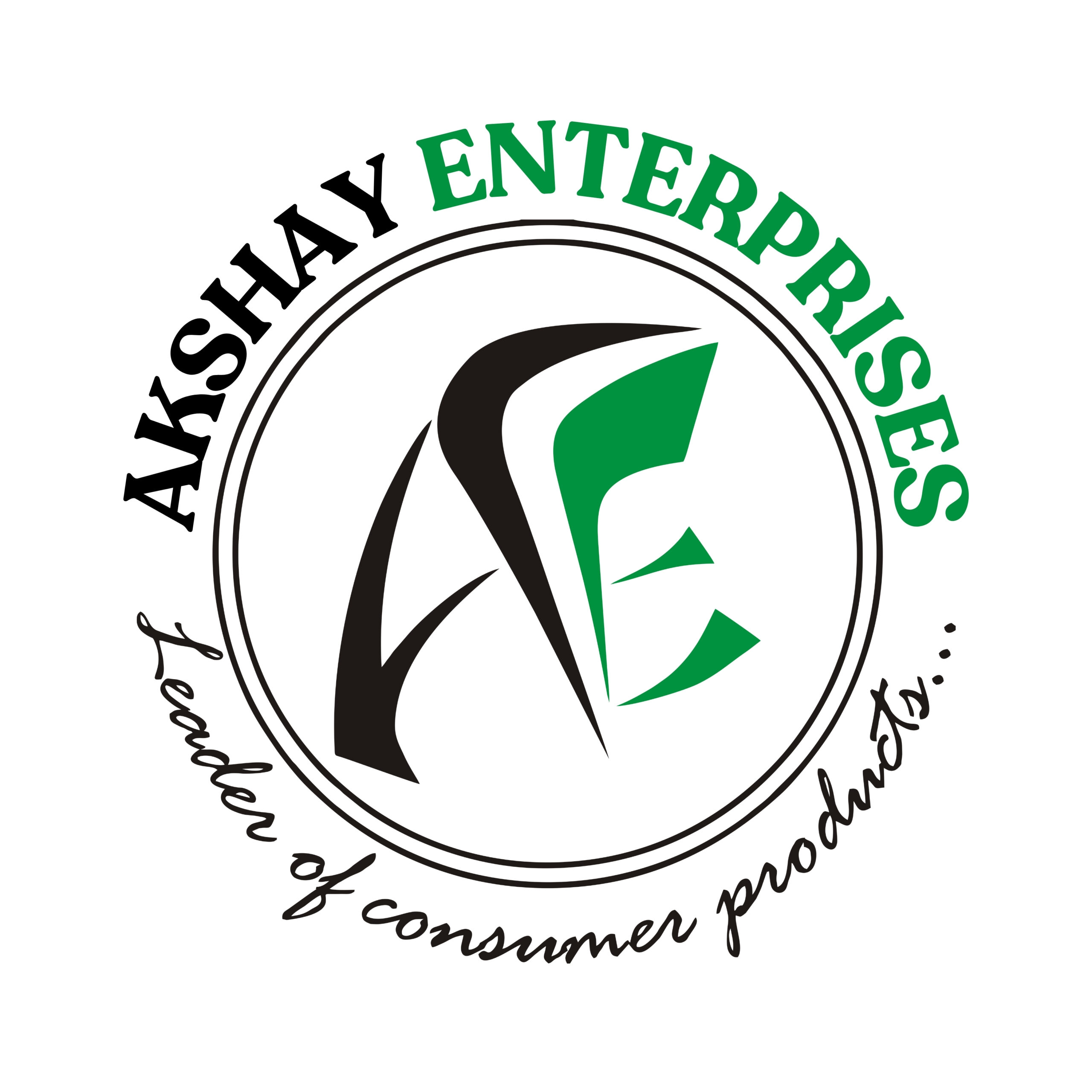Bulk buying is a stated form of business operation that permits a business to minimize expenses, assure profit margins, and maintain the supply of inventory at an optimal level. Buying larger quantities often allows companies to better negotiate prices, take advantage of economies of scale, and streamline procurement processes. Bulk purchasing, though a great money-saving option, also comes with a considerable amount of risk, which, unless effectively managed, could quickly turn its cost-saving returns into shambles.
Common mistakes businesses can make buying in bulk include underestimating potential supplier inquiries, misjudging market demand, and failing to take storage constraints into account. This may lead to overstocking, spoilage, poor cash flow, or obsolete product. Poor planning and hastily made decisions can also keep a business from saving its invested money, incurring additional overhead, or generating lethargic management.
To turn bulk buying mistakes to an effective use, a company needs a little more strategic effort-discuss supplier evaluations, market analysis, viable storage solutions, and well-structured procurement planning need to be balanced. This guide will present the top five mistakes businesses make when buying in bulk and offer specific advice to avoid them, so that your bulk purchasing decisions will be profitable and sustainable.
Mistake #1: Not Researching the Supplier
One of the most common but very insensitive mistakes made by businesses is not investigating properly the supplier before forming a partnership with it. It is inadequate to note that mistaking the supplier itself could lead to great peril, such as shipment delays, poor-quality products, financial losses, or even defrauding. Many businesses, particularly new entrepreneurs, choose a supplier mainly on the basis of the lowest price and without verifying the supplier’s history, credibility, and reliability.
How to Remedy This Mistake:
-
Verify Supplier Credentials: Conduct thorough research into the supplier before finalizing the new vendors. Look for reviews of suppliers on trusted business directories. Look for indications of consistent quality, timeliness of delivery, and happy customers.
-
Ask for Samples: Never place a bulk order until you have tested the products. Send for a sampling to test the quality, look at the packaging, and overall standards. This will help you to gauge if the supplier meets your business needs.
-
Check Certifications and Compliance: Find out whether the supplier meets industry regulations and quality standards. A recognized certificate of approval provides credibility and defines minimum safety and quality norms.
-
Work with Trusted B2B Suppliers: To avoid risks, work with suppliers that are already established and known for reliability. Akshay Enterprises is a reputed entity in the field with good products, timely delivery, and robust goodwill based on their customer satisfaction. Picking a reliable supplier like Akshay Enterprises is a guarantee you’re getting good quality products, avoiding supply chain hassles, and making losses owing to fraud.
Proper investigation on your suppliers and finding a trustworthy supplier can avoid costly mistakes by businesses and help in building strong sustainable supply channels.
Mistake #2: Ignoring Product Quality Checks
While quality control is among the make-or-break elements in the lifecycle of a business, some manufacturers succumb to the cost and prompt delivery pressures at the expense of quality assurance. As a result, this exposes them to all manner of problems, such as customer dissatisfaction, negative reviews, issues with service delivery, and in some cases, lawsuits. It is incredibly difficult to regain customer trust after you have damaged your reputation, driving home the point of how important it is to invest in quality control right from the start.
How To Avoid This Mistake:
-
Before Confirmation of Purchase, Carry Out the Earth-Shaked Quality Checks: Checking the product sample before confirming an order will offer you an opportunity to evaluate whether it would meet your expectations of quality. The material, durability, fitness for function, and even the packaging must be physically inspected to ensure that the product conforms to your standard. Ask for a small quantity of a product first if ordering in bulk and have this sent for a small lot quality test.
-
Ask for Product Certifications and Batch Test Reports: The supplier you want to deal with should be in possession of a certificate proving adherence to the standards prescribed in the industry. Certifications such as ISO, GMP, FSSAI (for food and health products), or any other similar regulatory approval articulate adherence to strict quality guidelines. Furthermore, batch test reports help establish uniformity in quality and safety across each manufacturing lot.
-
Impart to the Suppliers Clear Quality Parameters and See Compliance: These include the standard parameters by which raw materials are selected, procedures of production, characteristics of packaging, and level of acceptance for defects. For this purpose, these expectations must be passed on to would-be suppliers and annexed to purchase agreements. Conduct regular audits or inspections to ensure compliance.
These give assurance that businesses can minimize risks while improving customer satisfaction, and create long-term trust in the brand.
Mistake #3: Overlooking Storage and Inventory Management
The major mistake common for many businesses is purchasing products in bulk without caring about storage and inventory management. Bulk purchase may save money but could also lead to a loss if one does not store or manage inventory properly. This type of approach can yield severe losses by virtue of incurring excessive holding costs thereby lacking profitability because poor storage planning results in product damages, spoilage, and obsolescence.
Suggestions To Avoid The Mistake:
-
Check Storage Space First Before Ordering in Bulk: Before ordering items in bulk, check the storage within your organization. Your storage should not lead to overcrowding, inefficiency, or product damage at any point. Be sure to account for temperature, humidity and shelving arrangements which are known to influence product shelf life and quality.
-
Install the Inventory Management Software: An inventory management system is designed to track stock levels in real-time in order to avoid overstocks or stockouts. Advanced software systems go a step further by automatically sending alerts for reordering supplies depletion and tracking expiry dates or predicting based on demand. As a result, such software allows businesses to keep control over their inventories.
-
Adopt First-in, First-out principles: This method entails that older inventory is sold or utilized before verifying the newer stock. Particularly, most relevant to perishables and products with expirations, this practice is essential because it immensely cuts waste and losses that are a result of spoilage or obsolescence.
Effective management of storage and inventory can enable the business to attain positive cash flow, trim unnecessary costs, and also maintain a sustained flow of quality products to consumers.
Mistake #4: Failing to Negotiate Better Terms
The common error that businesses run into is that they accept the price or term that the supplier offers without trying to negotiate. This is likely to cost them more, or potentially result in less favorable payment terms, or overlook the chance to negotiate for further benefits such as free shipping or longer credit periods. Many suppliers often will have room to bargain-almost always when buying wholesale or with a long-term contract.
Ways to Avoid This Mistake:
-
Get as many quotes as possible from a number of suppliers: Get competitive estimates from several suppliers first before sealing the deal; this gives one the go-ahead and a foundation to stand firm.
-
Negotiate for a better price:
-Discounts for buying in volume: Incase of doing big purchases, ask for volume-based discounts. Suppliers very often quote a lesser amount for bulk purchases to tempt a larger order.
-Bonus Payment Terms: You can work out better payment alternatives, maybe not paying full upfront or extending credit periods for enhancing cash flow.
-Free shipping or extras: some suppliers might give free shipping, or a longer warranty, or a better return policy-all in an effort to win your long-term business.
-
Build Relationships into the Future:
-Building a trusting and consistent relationship with suppliers might allow for better pricing and more priority service.
-Long-term customers usually do get better terms: including advance notice of upcoming product launches and exclusive offers.
-A solid supplier relationship also ensures better supplier support in the times of interruptions in the supply chain.
By being proactive and negotiating on one’s behalf, companies could lower costs, increase profitability, and create better terms to aid long-term success.
Mistake #5: Not Considering Market Demand and Trends
One of the biggest mistakes businesses make is not undertaking market demand and current trend analysis before bulk stocking inventory. Any organization lacking demand forecasts may end up procuring items that remain unsold, having to bear a massive burden of overstock and increase in the storage space. The result? They suffer losses, eat up space, and bear the consequent risk of obsolescence.
How to Avoid This Mistake:
-
Market Research: Before placing bulk orders, businesses should consider industry trends, competition strategies, and consumer behavior. Knowledge of products that have demand helps businesses avoid overstocking and keep notified inventories with respect to customer needs.
-
Using Sales Data and Customer Feedback: Looking at the sales records from previous months, reviewing seasonal trends, and taking feedback from customers themselves can provide insights on which products sell well. The sales statistics present a basis for rational decision-making around purchase criteria instead of wild guessing.
-
Be Careful About Seasonal Products: Seasonal demand items such as holiday-themed items or weather-related items should always be stocked carefully. Start with smaller batches for items with uncertain demand, or give ‘Just-In-Time’ control order through inventory management software.
-
Watch Emerging Trends: Consumer preferences change fast. To stay ahead of the curve and make investments in high-demand products, it is imperative that businesses monitor emerging trends via social media, industry reports, and competitor strategies.
-
Use Inventory Management Systems: Inventory tracking software and demand forecasting tools allow a business to maintain optimal stock levels on the shelf while preventing unnecessary over-orders, thus assuring it uninterrupted inventory upon demand.
Thus, an instinctive analysis of demand and market trends offers business savvy techniques to purchase smartly leading to a reduction in losses and maximization of profitability.
How to Avoid These Common Bulk Buying Mistakes
Purchasing in bulk could be a profitable strategy for businesses, but it can have many pitfalls. Here are factors that need to be considered in order to make the bulk purchase as smooth as possible:
Research and Authenticate Suppliers
Before making that bulk purchase, intensively research potential suppliers. Check their credibility, customer reviews, and reputation in the industry. Search for suppliers that have an impeccable record of reliability, quality of products, and timely delivery. If feasible, refer to other businesses that have had a prior business-to-business engagement with them. Verifying these factors through certificates, licenses, etc., can prevent problems of inferior quality products and services.
Inspect Product Quality Before Finalizing Deals
Quality control becomes vital when purchasing wholesale. Never assume that the integrity of all products will match what you expect them to be, especially from a known supplier. Get some samples in order to visually check the condition of the goods before proceeding with the big purchase. Make strict tests or examinations particularly when dealing with fragile, perishable, or high-value goods. If needed, contract out quality inspection services in order to ensure that your bulk shipment measures up.
Formalize Storage and Inventory Management
One of the main bulk purchasing pitfalls is effectively managing stock and storage. Ensure sufficient rooms are available for receiving the goods and storing them without incurring damage. Consider factors such as climatic control, shelf life, and accessibility. Inventorize functions ought to be undertaken efficiently so as to keep track of stock levels, avoid overstocking, and thus curtailing waste. Proper planning ought to be there to avoid lack of storage space that may cause one to incur monetary losses.
Negotiating the Best Deal
Bulk buying allows one to negotiate for better pricing, payment terms, and delivery conditions. Whatever the price given, do not accept it at once because there is plenty of room for discounts, flexibility with payment options, and shipping terms. Suppliers should be willing to negotiate long-term contracts to ensure quality and price benefits. With the right strategy, negotiations can be used to increase the savings you obtain through bulk buying.
Align Bulk Buying with Market Demand
Buying in bulk bears the catch when demand for that product in the market dwindles if never looked into closely. Analysis of the market trends, seasonal demand, and customer preferences is advised before making any bulk buying. Overordering will lead to wasting storage space for a product that is very slow to sell, perhaps wastage, and least profit. Market research, historical sales data analysis, and keeping optimum consumer needs up and running will ensure that your bulk purchases meet demand and facilitate profit.
With the steps above, businesses will be able to avert common bulk-buying mistakes, tune their purchasing systems, and leverage cost savings whilst providing an assurance of quality and efficiency.
Bulk buying can be very cost-effective if a business plans well and makes informed decisions about purchasing. Most businesses make the common mistakes of overstocking, neglecting quality checks, not negotiating a better price, or not taking storage and handling costs into account. These mistakes can cause financial losses, inventory that cannot be sold, and, perhaps worse of all, compromised product quality.
In order to really profit from bulk buying, companies must work from a foundation of best practices: determining demand patterns, working with reputable suppliers, negotiating for better contract terms, and controlling inventory. Bulk buying from a trusted supplier will allow a company to take advantage of economies of scale, resulting in reduced costs per unit and improved availability of stock.
If you are looking for a reliable partner in your bulk buying process, look no further than Akshay Enterprises! We deliver quality products at competitive prices to get the best value for you. Be it raw materials, finished products, or custom bulk solutions, we ensure an effective solution in procuring that gives you complete peace of mind.
Connect with Akshay Enterprises and let them help you get bulk procurement done for your business and save a buck!
Frequently Ask Questions
Qus#1. How do I verify a supplier’s credibility?
Check online reviews, request references, and verify their business licenses before committing to a bulk order.
Qus#2. What’s the best way to inspect bulk goods before purchase?
Request product samples, conduct third-party quality checks, and set up a product testing protocol with the supplier.
Qus#3. How can I improve my bulk purchasing negotiation skills?
Compare multiple quotes, leverage order volume for better pricing, and negotiate payment terms for cash flow management.
Qus#4. How do I determine the right quantity to buy in bulk?
Analyze sales data, forecast demand, and calculate storage capacity before placing large orders.
Qus#5. What industries benefit the most from bulk buying?
Industries like home appliances, personal care, and wellness benefit significantly from cost-effective bulk purchasing.






